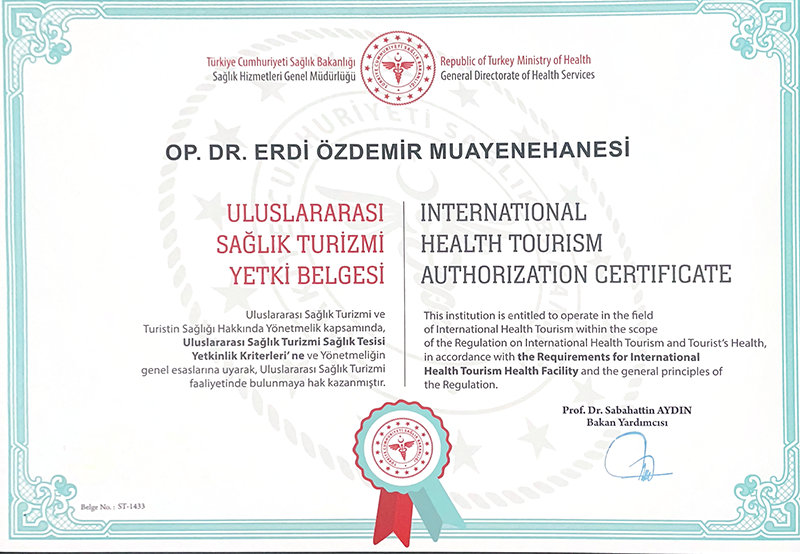Хирургия полипов носа

Nasal Polyp Surgery
What is Nasal Polyp (Concha Hypertrophy) Surgery?
Breathing is vital. Nasal canine surgeries are frequently performed surgical operations in nasal obstruction surgery. Inside the nose, there is flesh called concha, which directs the air we breathe to the lungs at ideal humidity and temperature. The secretion of intranasal fluids such as mucus, is also thanks to this flesh. It performs the task of filtering the air we breathe from the outside environment. It swells in cold weather and shrinks in hot weather. Nasal enlargement, also called turbinate hypertrophy, obstructs the airways and makes it difficult to breathe. To eliminate this problem, the process of reducing the nasal concha with a surgical method is called nasal polyp surgery. There are also drug treatment methods in the treatment of nasal polyps. If there is no improvement with medication, surgical intervention is essential.
Why Does Nasal Polyp Enlargement Occur?
Nasal polyp growth, which differs from person to person, is caused by genetic, environmental factors, allergic or infection reasons.
What Problems Does Nasal Polyp Cause?
Nasal polyp growth primarily obstructs the nose and makes breathing difficult. The quality of life of the patient decreases considerably. People start to get tired quickly in daily life. Since the nose is blocked, mouth breathing begins during sleep. Sleep apnea problems occur because there is not enough breathing. Sleep apnea can trigger heart attacks. Continuous mouth breathing can cause pharyngitis if the air goes to the lungs without being filtered. Night sleep is constantly interrupted and therefore a feeling of fatigue occurs.
To Whom Nasal Polyp Surgery Is Performed?
It can be applied to those whose quality of life has decreased and to anyone who has no other general health problems. It is not recommended for pregnant women, breastfeeding women and those with different health problems. Op.Dr. Erdi Özdemir will give you more detailed information during the appointment. He or she will tell you whether you are a suitable candidate before surgery.
What Should Be Done Before Nose Polyp Surgery?
Medications such as blood thinner aspirin should be discontinued 2 weeks before surgery. This reduces the risk of excessive bleeding. Tell your doctor if you are allergic to drugs. If you will be operated under general anesthesia, you should not eat or drink anything 12 hours before.
How is Nose Polyp Surgery Performed?
Nasal surgery is performed under local or general anesthesia. Local anesthesia is generally preferred, but it can also be performed under general anesthesia if patient comfort is considered. Nasal polyp surgeries were previously performed using an open surgical approach. However, with the development of technology, it is made using laser or radio frequency techniques. In the laser method, a laser beam is given to the nasal concha to reduce it. In radio frequency, shrinkage is achieved by heating the electrodes placed on the nasal concha. The surgery takes approximately 20 to 30 minutes. You can be discharged on the same day. However, as a result of your doctor's evaluation of your condition, he may keep you under observation overnight.
How does the Recovery Process of Nasal Polyp Surgery Work?
Complete recovery after surgery is between 5 and 8 weeks. It may differ from person to person. If your surgery is performed with laser or radio frequency, tampons are not used. There is no pain after the surgery. However, mild pain and sensitivity may be experienced in the area. Significant improvements in breathing will be noticed within a few days. You can return to your normal daily activities after a week.
What are the Points to Be Considered After the Surgery?
You must follow your doctor's post-operative recovery protocols to further reduce the possibility of bleeding and swelling. In addition, what you need to do;
• The head must be lifted while sleeping.
• Do not blow your nose for several weeks.
• Do not touch your nose while wearing the clothes.
• You should avoid heavy exercises for 3 weeks to avoid nosebleeds.
Is Nasal Polyp Surgery Risky?
As with any surgical operation, it has the potential for bleeding, infection and anesthetic reaction. Other possible risks specific to nasal concha surgery include:
• Ongoing symptoms such as excessive nasal congestion, breathing problems
• Excessive bleeding
• Complications due to infection
• Headache
• Loss of smell
• Excessive bruising, swelling
• Blood clot in the nose
• Numbness in the area
When these situations occur, you should immediately contact your doctor who performed your surgery.
Режим Работы
- Пн-Пт 9:00 - 20:00
Суббота 09:00 - 18:00
Воскресенье Закрыто
Контактная Информация
-
Телефон: +905548112667
- info@erdiozdemir.com









